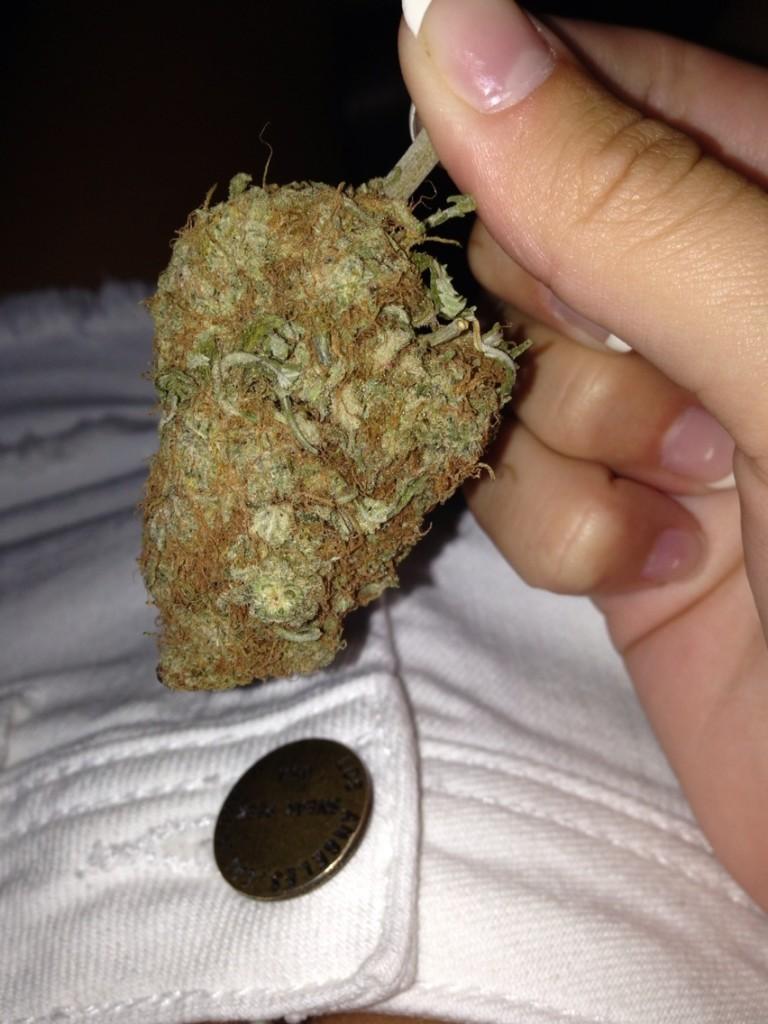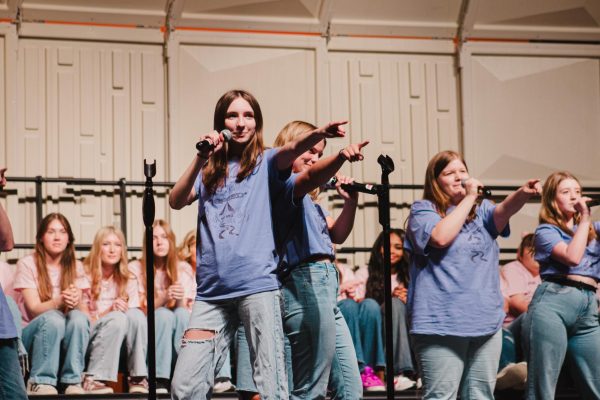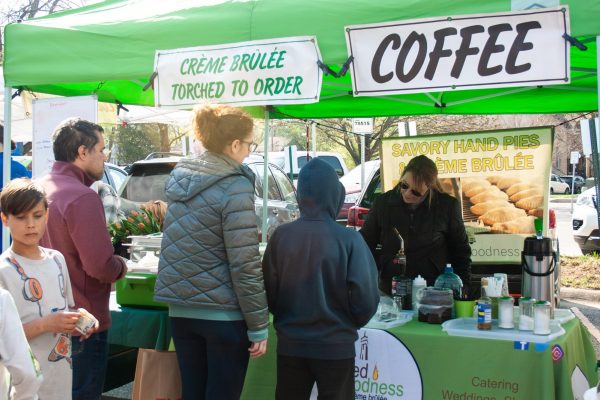Extreme Drug Use
A WAY OUT
Not many things warrant a serious offense in cross country, but smoking an e-cigarette on the bus ride back from a meet can.
Sophomore Nick Jacobs was borrowing the e-cigarette from his friend, who was also on the bus, when he decided to publicize his stunt.
“We were just smoking [the e-cigarette], and my friend and I decided to take pictures of us taking hits of it, and we posted them on Instagram,” Jacobs said.
Later, Steve Heffernan, head cross country coach, was informed about the incident and took disciplinary action.
“I almost got kicked off the cross country team, and I got suspended for a meet, and I got ISS for a day, and we’re suppose to meet with the nurse to talk about drug use and tobacco use,” Jacobs said.
Eventually, Jacobs quit the team of his own accord.
“[E-cigarettes are] just water vapor and nicotine with flavor in it,” Jacobs said. “I don’t even see why people think it’s harmful to other people. It’s not.”
While some students use “softer” substances, others on the ‘less-extreme’ side use ‘harder’ substances in moderation.
Junior Girl A* said she drinks about once a month, but does not smoke cigarettes or marijuana. Senior Girl A* used to smoke cigarettes, but she quit after dating a chain-smoker because she didn’t like the smell.
The majority of students said they used alcohol because of peer influences or just for fun despite regretting their consumption on at least one occasion.
“I don’t like the after effects, and it’s easy to do stupid stuff,” Junior Girl A* said.
Due to the drawbacks, some students have substantially reduced their consumption.
“Alcohol just makes you gain a bunch of weight,” Senior Girl A* said. “I have a lot of friends who have gone to college now. They’ve all gained at least 15 pounds just cause they’re all drinking so much more. I lost 14 pounds when I stopped drinking too.”
Senior Girl B*’s reason for cutting back was different.
“I grew out of it,” she said. “I got a job. I don’t have time for it anymore. I have more responsible things to do.”
Statistics from dosomething.org, say that nine out of ten American teens report that drinking is not worth the consequences it causes.
However, most marijuana users interviewed did not express the same regret.
“You never hear about people making incredible mistakes because they were high, it slows you down, relaxes you,” Senior Girl A* said. “It doesn’t make you do crazy things and get into fights, and people don’t get raped because they were high. Car accidents can happen, but in general they happen from alcohol.”
MIDDLE GROUND
Some students have the burden of assisting intoxicated peers.
“I’ve had to call parents and have them come pick up [their kids], or I’ve had to have my mom come and babysit them at my house, or I just call other friends,” sophomore Maddie White said.
Often times, these duties require students to withstand some unappealing aspects.
“[I have to] hold back their hair while they throw up or feed them to help them sober up,” senior Natalie Anderson said.
While helping intoxicated friends is unpleasant occasionally amusing, some students see it as a responsibility.
“I feel responsible because I’m not always as drunk as these people, and if I don’t help them, I know no one else will,” Senior Girl B* said. “I feel like if that happened to me, I would hope someone would help me.”
While some may feel responsible for improving friends’ condition, others express pity for friends who they witness go overboard.
“It’s not pleasant,” senior AJ Ware said. “You don’t like seeing anyone you care about throwing up or passing out because you just feel pitiful, you know, you feel like that’s not them, they shouldn’t look like that.”
Perhaps deterred by the nasty hangovers, some prefer prescription pills over alcohol and marijuana. Because of these medications’ drastic effects, a fine line resides between medicinal purposes and abuse.
“I did it out of curiosity, and then once I tried it, I liked it so I just kept on doing it,” Sophomore Girl A* said. “… It was fun. Made school doable.”
Pills are also easier to access.
“I’d say [they’re] easier [to obtain] than alcohol,” Sophomore Girl A said. “A lot of kids in school have them. I know me alone, I got them from multiple people.”
While Senior Boy B* has tried pills, he is wary of the risks and does not prefer them.
“[I take them] only if someone I know has them and they offer them to me,” Senior Boy B said. “I don’t spend money on them. They aren’t good for you at all, and [they are] addictive.”
Senior Boy A* opposes the abuse of prescription pills for variant reasons.
“That will honestly be a thing that I fight for the rest of my life,” Senior Boy A said, “because my mom is on prescription drugs, prescribed to them, for depression and anxiety, and that’s what people abuse them for like Xanax, Percocet, Vicodin and stuff. The notion of ever using those for my own pleasure is so foreign to me since I see my mom using them because she needs them, that I could never abuse those.”
TO THE EXTREME
Cop run-ins and insane party stories are not uncommon for students who frequently employ substances as means of enjoyment.
However, for some students, substance abuse is not about having a good time, but avoiding a bad time.
“My dad abused my mother, and I’m trying to forget things,” Senior Boy A* said.
Although his personal situation has heightened his substance use, (he asserts that he smokes pot daily), this senior refutes addiction.
“Addiction is something that seems to be what I am because you hear the number of usage which is everyday and you think, ‘oh, he’s addicted’,” he said. “But there’s been times when I don’t have the ability to smoke pot, like you’re off on vacation for weeks at a time, and I don’t go through withdrawals. I don’t feel bad; I don’t crave marijuana. It’s actually a nice break, you know, because you have your own head for like two weeks.”
He is acquainted with the risks he is undertaking, though.
“After being talked to by my parents, they made me look up health facts,” he said, “and some of the most significant ones were that cigarettes and tobacco are 100 percent proven to lead to lung cancer.”
While smoking marijuana may not be as harmful to one’s health as people may assume, substance use can certainly be detrimental to one’s wallet. Senior Boy B* admits to spending approximately $50 a week on various substances.
For Sophomore Girl B,* who spent $50 on substances for a party she hosted, this is an easy price to pay if it creates a memorable event.
“It’s fun to know you’re throwing the party, and everyone is going to remember it,” she said.
Although the thrill of obtaining and consuming illegal substances may compose a pleasurable occasion, the effects of abuse are not always satisfactory. Sophomore Girl B witnessed, and had to come to the rescue of friends irresponsible in their illegal usage.
Of a different party, Sophomore Girl B described a raid by police on an apartment where her underage friend was attending that became a “big ordeal.”
Senior Boy B* has had even more traumatic experiences with the police.
“I got arrested last Halloween for possession,” he said. “That wasn’t fun … That wasn’t funny. It sucked. Actually, I was the only one who got arrested because it was my car.”
Even if the consequences of being caught with drugs are dire, students continue to acknowledge how commonplace substance use is in their teenage lives.
“[While being high,] everything is really funny, and it makes everything more interesting,” Sophomore Girl B said. “It’s like a different mindset. It kind of opens your mind to newer things.”
*Signifies students who spoke truthfully under the condition of anonymity for fear of self-incrimination.
**Since marijuana contains cancer-causing chemicals (carcinogens) similar to tobacco smoke, the risk for lung cancer may be increased when smoking marijuana. Also, marijuana users expose their lungs to a larger amount of smoke because they tend to inhale more deeply, smoke without filters and hold their breath when they inhale.
Your donation will support the student journalists of Lawrence Free State High School. Your contribution will allow us to purchase equipment and cover our annual website hosting costs.







